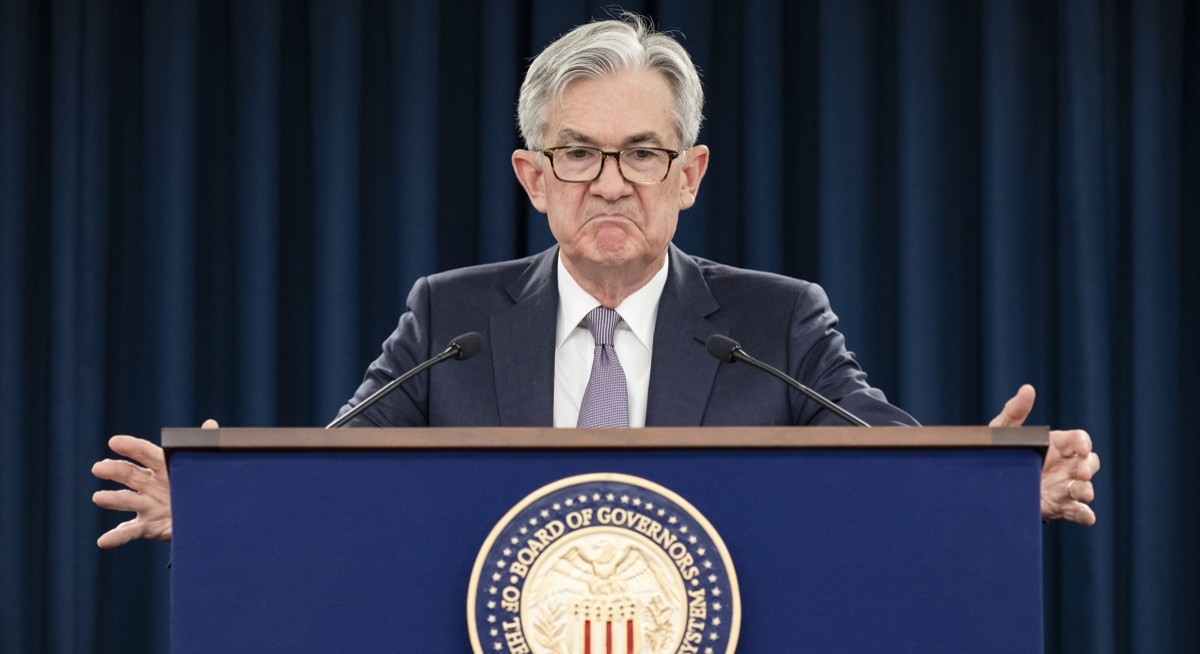Global bond markets follow where two-year US Treasury yields go — and their trajectory is terrifying for economies and currencies that can’t match the rates. This time last year, the yields were at 0.2%; now they are 19 times higher. And all this is before the Fed’s full-throttle $95 billion-per month quantitative tightening kicks in. It really hasn't had time to assess the effects its rapid hiking has had. But, like it or not, the dollar is the world's reserve currency. Everyone outside the US will feel the impact if liquidity dries up with higher rates.
US investors will continue to have no incentive to stray from American assets — and this will starve the rest of the world of capital. The latest Bank of America worldwide survey of fund managers survey, released on Tuesday, shows the largest underweight of global equities in its history. If you’re a professional investment strategist, you’re not going to be fired if you stick to dollar assets, or just dollar cash. It’s hard to see what will change this mindset.
It's mighty tough for other economies and markets to compete when all roads lead to a stronger dollar. That omnipotence is laying waste to many of the world’s currencies as the Fed’s swift interest-rate increases compel faster and faster flights to quality.
See also: Canada employment falls by 24,800, jobless rate down to 6.5%
Take Japan. The yen is at its lowest since 1990 with a more than 25% weakening against the dollar in the past year. The country has seen its export-led economic advantage over the US rent asunder because of the need to import most of its energy and pay for it in dollars. The Bank of Japan has been forced to step up its defense of the currency. Active intervention is now a distinct possibility, funding it probably with sales of its reserves of US Treasury bonds.
For a long time, the BOJ was the sole major central bank happy to pursue inflation as a path to growth for its stagnant economy. It’s finally seeing prints above its 2% target. Simultaneously, it maintained an iron grip on its bond market to keep interest rates low — often negative. However, it cannot do both of these things and prevent its currency from spiraling downward. There are limits to how low or fast it can let the yen fall. And this will have knock-on effects to the Chinese yuan, Korean won and Taiwan dollar. Another bout of dollar strength — juiced by a fresh rate surge from the Fed — could blow the BOJ's strategy apart and upset the rest of Asia.
See also: India central bank set to allow banks to lend to REITs
China will feel entitled to respond in kind to an unwanted decline in its currency. It normally keeps it carefully under control, but it has had to let the yuan weaken by over 10% to the dollar in the past six months. Not even the world’s second-largest currency can withstand the American inflationary tide.
On the other side of Eurasia, both the euro and the pound have been racing each other lower versus the dollar since the spring of last year. Already hamstrung by all the spending to exit the pandemic, Europe is now caught in the crosshairs of the energy crisis because of its dependence on Russian natural gas. Growth is evaporating before our eyes, with the UK flatlining all this year, and parts of the European Union sliding into recession. Deutsche Bank AG analysts expect the German economy to contract by as much as 4% next year.
Like the Fed, the European Central Bank and Bank of England are contemplating not just beggar-thy-neighbor jumbo rate hikes but also reducing banking system liquidity and reversing quantitative easing bond purchases — all at once.
Abandon hope all who enter here.
This will happen because we’ve basically allowed the Fed to set interest rates for the entire world. But Fed Chair Powell and his compatriots are hampered by myopia: All they can see is the too-tight American labor market. The resulting monetary arms race risks becoming catastrophic.
The truth is, not every economy needs ever higher borrowing costs to choke off demand; much of global inflation is external supply-side driven. And the world has changed fundamentally since Covid struck in 2020 and stunted globalization to a significant degree. Still, the reaction of the Fed and other central banks remains unchanged.
Stopping and restarting the global economy requires greater flexibility than offered by the blunt instrument of interest rates. It’s a good thing to wean financial markets and asset prices off repeated rounds of quantitative easing. But unwinding is something the Fed has failed to get right — twice.
Why do central banks persist in trying to land vast economies on the head of a 2% inflation target pin when it is no longer either feasible or desirable? Surely its time for a flexible range rather than a precise number. While headline inflation is likely to drop sharply next year anyway due to base effects, dragging the world back to much lower core inflation — excluding food and energy — is going to come at a huge economic cost.
Eventually, the Fed’s actions will come back to bite it and the US. By then all the many trillions of dollars of stimulus work done during the pandemic will have been unwound. What a phenomenal waste of time, money and effort. - Bloomberg Opinion




